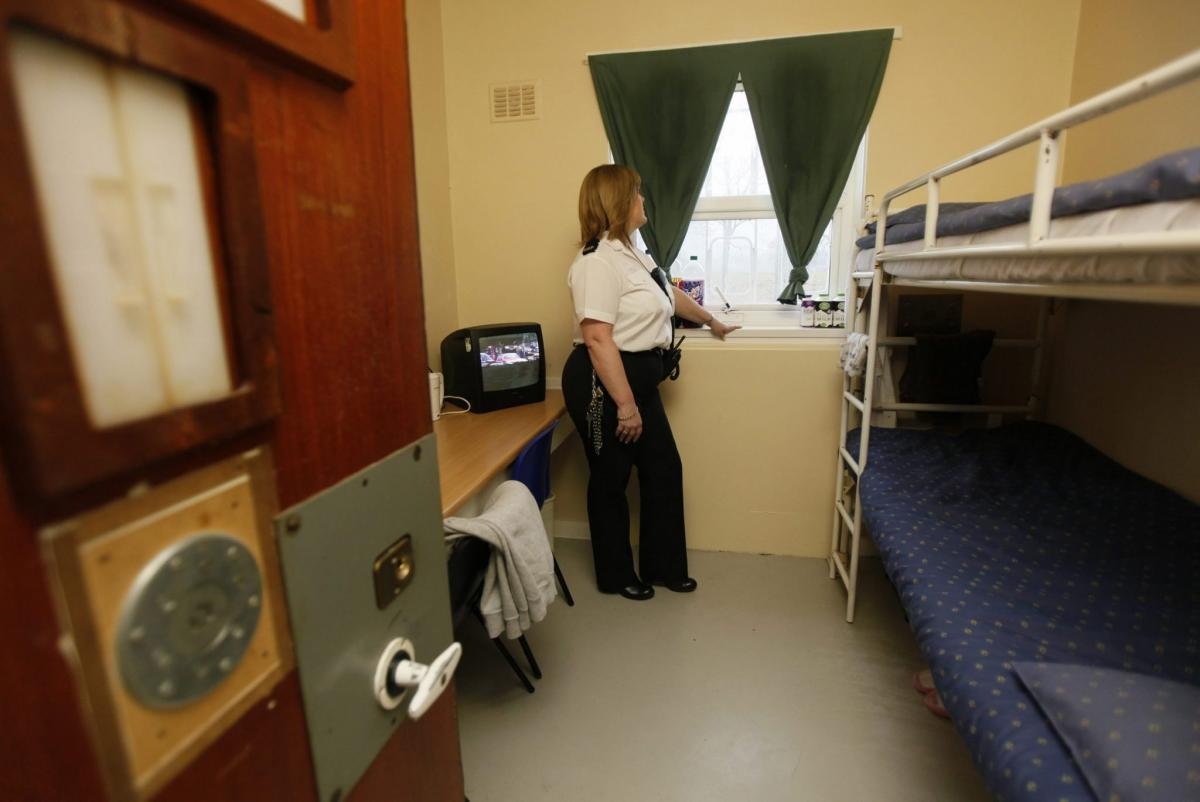TODAY IN THE COMMONS
EMBARGO: Tuesday 20 July 2021. (Also attached)SPEECH BY KENNY MACASKILL MPAdjournment Debate – Role of Lord Advocate Mr Speaker,I believe that many of the ills that afflict Scotland can be laid at the door of this Tory Government. One that hasn’t been elected in Scotland, not for the 55 years of hurt experienced by English footballContinue reading "TODAY IN THE COMMONS"

EMBARGO: Tuesday 20 July 2021. (Also attached)
SPEECH BY KENNY MACASKILL MP
Adjournment Debate – Role of Lord Advocate
Mr Speaker,
I believe that many of the ills that afflict Scotland can be laid at the door of this Tory Government. One that hasn’t been elected in Scotland, not for the 55 years of hurt experienced by English football fans, but for 65 years. Longer than I’ve lived. Independence is therefore essential.
But not all ills rest there and some along with our demons, such as alcohol and’ violence, can be and must be addressed by ourselves. The role of the Lord Advocate’s one.
The Lord Advocate and Law Officers along with Ministers are part of Scotland’s Offices of State, enshrined in the Scotland Act 1998 that established the Scottish Parliament. It’s why legislative change here’s required.
So, I’m grateful for the opportunity to raise this, welcome the willingness of the UK Government to assist and hope that urgency will now be shown by the Scottish Government. Scottish democracy badly requires it.
Before the post of Secretary of State for Scotland was created the Lord Advocate was the power in the land, and some were despotic indeed. The transportation of Thomas Muir and the hanging and beheading of Baird Hardie and Wilson, the Scottish Radicals and 1820 Martyrs, are crimes that lie with them.
Thankfully the post evolved and became a purely legal role. But an anachronism was built in. For the postholder is both principal legal advisor to the Scottish Government yet also head of the prosecution service, or the Crown Office, as it’s known. Now that’s something neither replicated elsewhere in the UK nor indeed in any modern democracy. Conflict of interest precluding it.
In England and Wales, an Attorney General advises Government from within. Meanwhile, a Head of the Prosecution Service is both separate and independent from government. But not so in Scotland and therein lies the problem.
To be fair, apart from those despotic years post holders, irrespective of political hue and whether pre or post devolution, have acted with the impartiality expected. Modest steps were taken to mitigate the conflict of powers.
Under Alex Salmond’s administration a convention was invoked that the Lord Advocate only appeared at Cabinet when legal advice was to be given and didn’t participate in wider political debate. But the anachronism still lingered.
Under Nicola Sturgeon’s administration it has been brutally exposed by both Scottish Government and Crown Office actions, and with the Lord Advocate straddling both. Change is now needed and fast.
Firstly, there’s been an admission by the outgoing Lord Advocate of malicious prosecutions involving the administrators in the Rangers FC liquidation. That’s unprecedented in Scotland not just in recent years but since those days of the early 19th century. Even south of the border there have been none since 1999 and high-profile cases before such as Winston Silcott and Daniel Morgan were rare.
It has caused alarm with the public and been of huge reputational damage in an organisation where impartiality is imperative.
It has also caused consternation and anger within police and prosecution services, where the overwhelming majority of staff act without bias and free of any favour or prejudice. The reputation of the many has been traduced by a few.
It was the former Lord Advocates’ decision and seeking to cast blame on his predecessor was shameful and inadequate.
An inquiry, perhaps even by a non-Scottish judicial figure, has been promised. Additionally, there’s the financial cost. Quantum of damages is for the court, but suggestions are the final bill could reach £60 or £80 million.
This in an organisation with an annual budget of £300 million, struggling to meet existing commitments. The price will be paid by Scottish Taxpayers and the loss felt by hard pressed Scottish public services.
Secondly, and just as alarmingly has been the role of the Lord Advocate, and a coterie around him within the Crown Office, in the Alex Salmond case and the fallout from it. Another instance, of the public having to pay the price of government incompetence, with the legal expenses bill in the civil case amounting to £500,000.
But where again impartiality, as well as competence was raised. In the civil case the Presiding Judge described the Scottish Government’s actions as “unlawful, unfair, and tainted by apparent bias”.
During proceedings senior external counsel, Roddy Dunlop QC, Dean of the Faculty of Advocates, expressed horror at the situation he and his colleague had been put in by their client, where they could no longer rest on pleadings they knew to be untrue. The client was the government and their senior legal advisor was the Lord Advocate.
A criminal case followed the failed civil case and prosecuted by the Crown Office where the same Lord Advocate remained in office. Despite growing pressures on police and prosecution nothing has been spared, nothing has been too trivial, but the targets always seem selective.
The Alex Salmond case saw resources deployed, normally reserved for a serious organised crime figure or a serial killer. Yet for charges that other than for who was being prosecuted, would either never have seen the light of day or only appeared in the lowest courts, not the High Court.
I say that as someone who was Justice Secretary for 71/2 years but was also a defence agent for 20. As it was, Mr Salmond was acquitted on all charges and by a majority female jury.
Now it’s standard practice in cases involving politicians that the Lord Advocate recuses himself from involvement in the consideration or prosecution of a case. And that was done here with no direct involvement in the prosecution.
But at the same time, he had been and was sitting on Scottish Government committees dealing with the civil case and where referral or prosecution was being actively sought and advised by the administration.
Let’s recall;
A prosecution was sought by the Scottish Government as the actions of the Director of HR in contacting the police confirm.
Many complainers, indeed, most, were and remain at the heart of Government or are officials or otherwise closely linked with the Governing Party.
Prosecution was encouraged and pressed for by the Chief Executive of the governing party and who’s the First Minister’s husband.
Chinese Walls and recusal are entirely inadequate. In one role the Lord Advocate was supporting a government pursuing prosecution, in another he was denying it was anything to do with him.
A separation of powers this certainly wasn’t.
When James Wolffe appeared before the Holyrood committee considering the Salmond prosecution, he was frankly evasive and obfuscating, mirroring the actions of the Crown and Government in a lack of openness and transparency. There was neither contrition nor candour. Open Government this certainly was not.
And the fallout and failures continue to reverberate. Following on from the Alex Salmond case has been that of Craig Murray, a writer and former diplomat.
Now his conviction’s under appeal at the Supreme Court. Accordingly, I refrain from commenting on specifics of the case. Instead I restrict my remarks to the decision by the Crown to prosecute Mr Murray for jigsaw identification of complainers in the case.
But why was he prosecuted when others weren’t. In one case certainly overtly and in many others much more flagrantly than by Mr Murray but no action was taken against them.
Moreover, there were publications which in any other case would have constituted a clear contempt of court but that went without censure by the Crown. They included newspaper articles that were as prejudicial as I’ve ever seen.
But they were supporting prosecution whereas Mr Murray though seeking to report factually wasn’t. It does seem that the Crown has one law for those supporting the government line and another for those who challenge it.
Neale’s Intervention:
Now James Wolffe has stepped down as Lord Advocate, replaced by Dorothy Bain. Ms Bain has an illustrious record of service and I wish her well, but the structural flaw remains.
Personnel changes no matter how merited cannot resolve the fundamental flaw of a lack of separation of powers. The Impartiality of the Crown’s an imperative in a democracy. It must be seen to act in the public interest not that of the government or its friends or allies.
The coterie who surrounded Mr Wolffe and who were instrumental in driving these policies and actions, often against the wishes and views of long serving staff still remain. In particular the Crown Agent Mr Harvie, the senior civil servant. Unusually amongst senior Crown staff his career hasn’t simply been as a Procurator Fiscal in Scotland but has included service and secondment to British Government Departments.
The situation is now critical as a police investigation has opened into the SNPs finances. The party leader is First Minister. Her husband is Chief Executive.
A situation that would be intolerable in any public body or private company or even in a bowling or social club in any Scottish Town. The idea that the Chief Steward could be the spouse of the Treasurer would draw derision and rejection but not so in Scotland’s governing party.
Worsening that further’ s the fact that all three members of the SNP Finance and Audit Committee resigned from their roles when refused information by the Chief Executive.
That has been followed by the resignation of the elected Treasurer, the Honourable Member for Dunfermline, for similar reasons.
Given what has happened, can the Scottish public be assured that the investigation will have access to all information and that any decision to prosecute or not, will be made on legal criteria and in the interests of justice.
Protocols have failed, been breached or even abused. Interim steps can be taken to separate the roles.
Perhaps, there should not just be a recusal as there no doubt will be by the Lord Advocate but as with the Rangers FC investigation, the bringing in of an external Judicial advisor.
Moreover, the Lord Advocate has recused herself from involvement in the Rangers FC civil proceedings. Maybe she should recuse herself from all direct government involvement.
An Inhouse legal department exists. The duty to represent the Government in court and pursue constitutional challenges remains but that can be dealt with by external counsel.
Change and a separation of powers there must be. The twin roles of the Lord Advocate in prosecution and in advising government are an historical anachronism and entirely unsuited to a modern democracy.
As a former Justice Secretary and someone who has practised law in Scotland for over 20 years and cherishes our distinct system, I’m appalled at what has happened. And I know that’s echoed in legal circles.
I call upon the Minister to engage with the Scottish Government as a matter of urgency so that changes can be made to the 1998 Act.
Changes providing for a complete separation of powers between the Head of the prosecution service and the senior government legal advisor. Every modern democracy does and so must Scotland.
The failures have been too many and the risks too great.
For justice has not only to be done but must be seen to be done.
ENDS
What's Your Reaction?










































